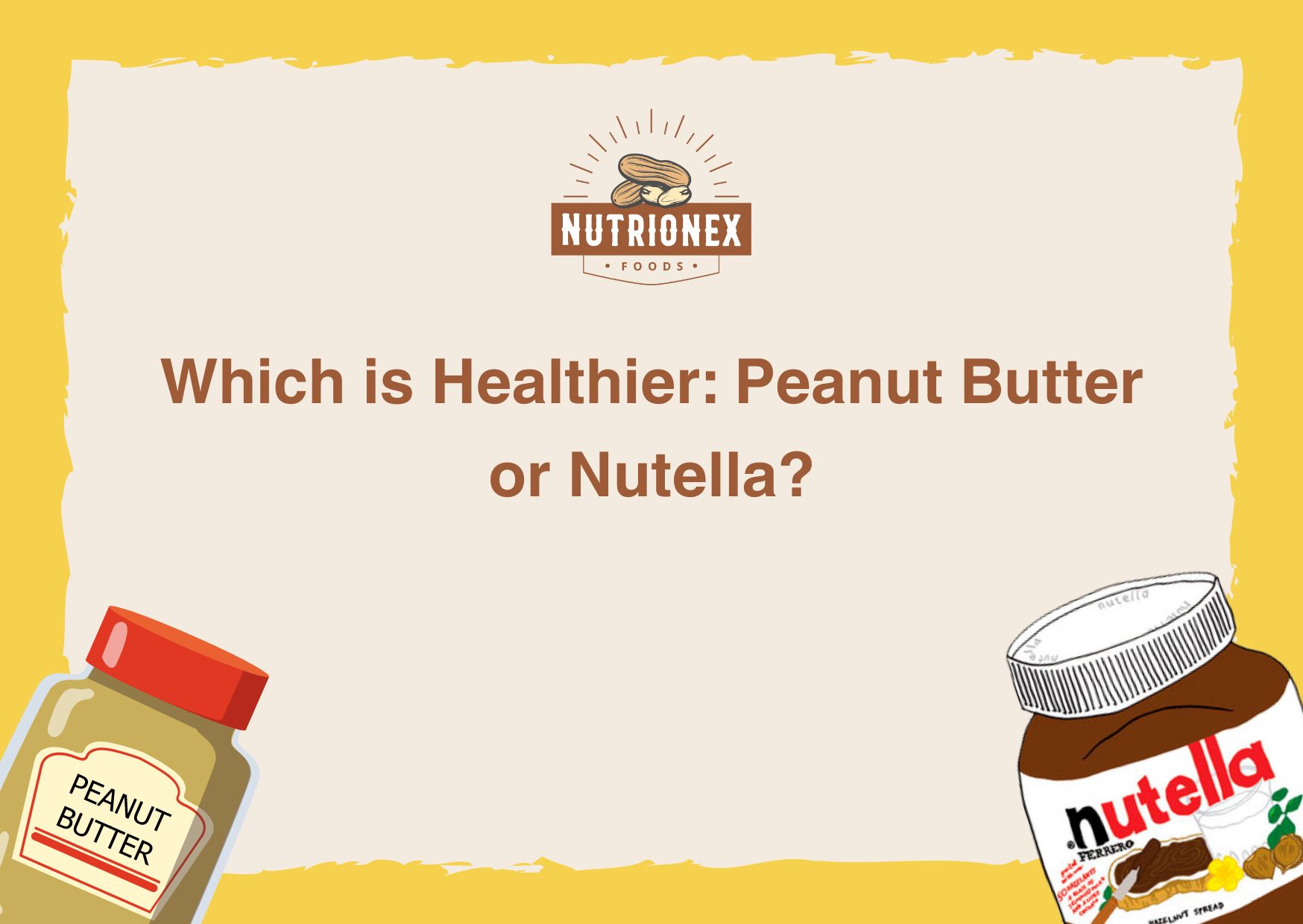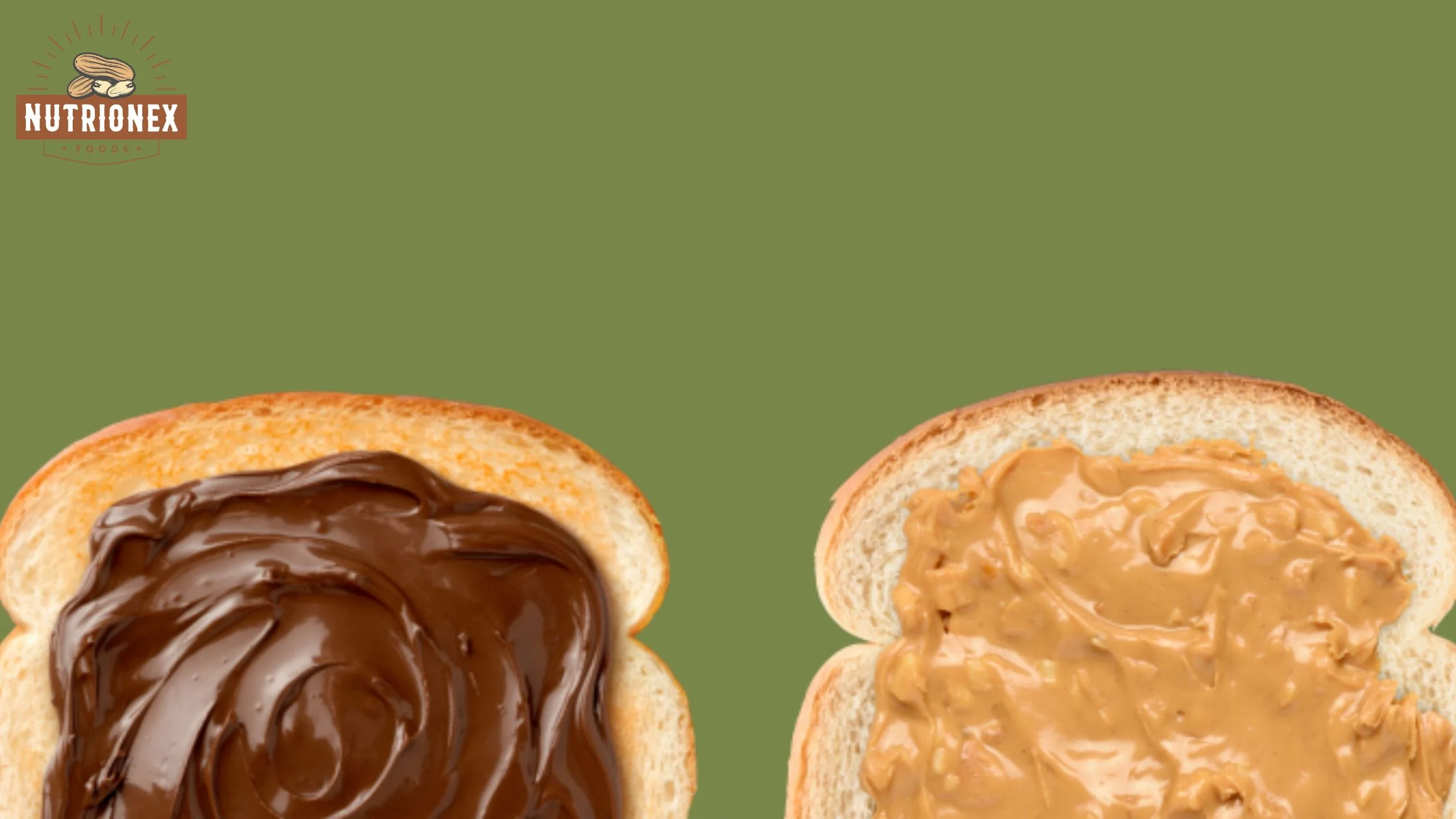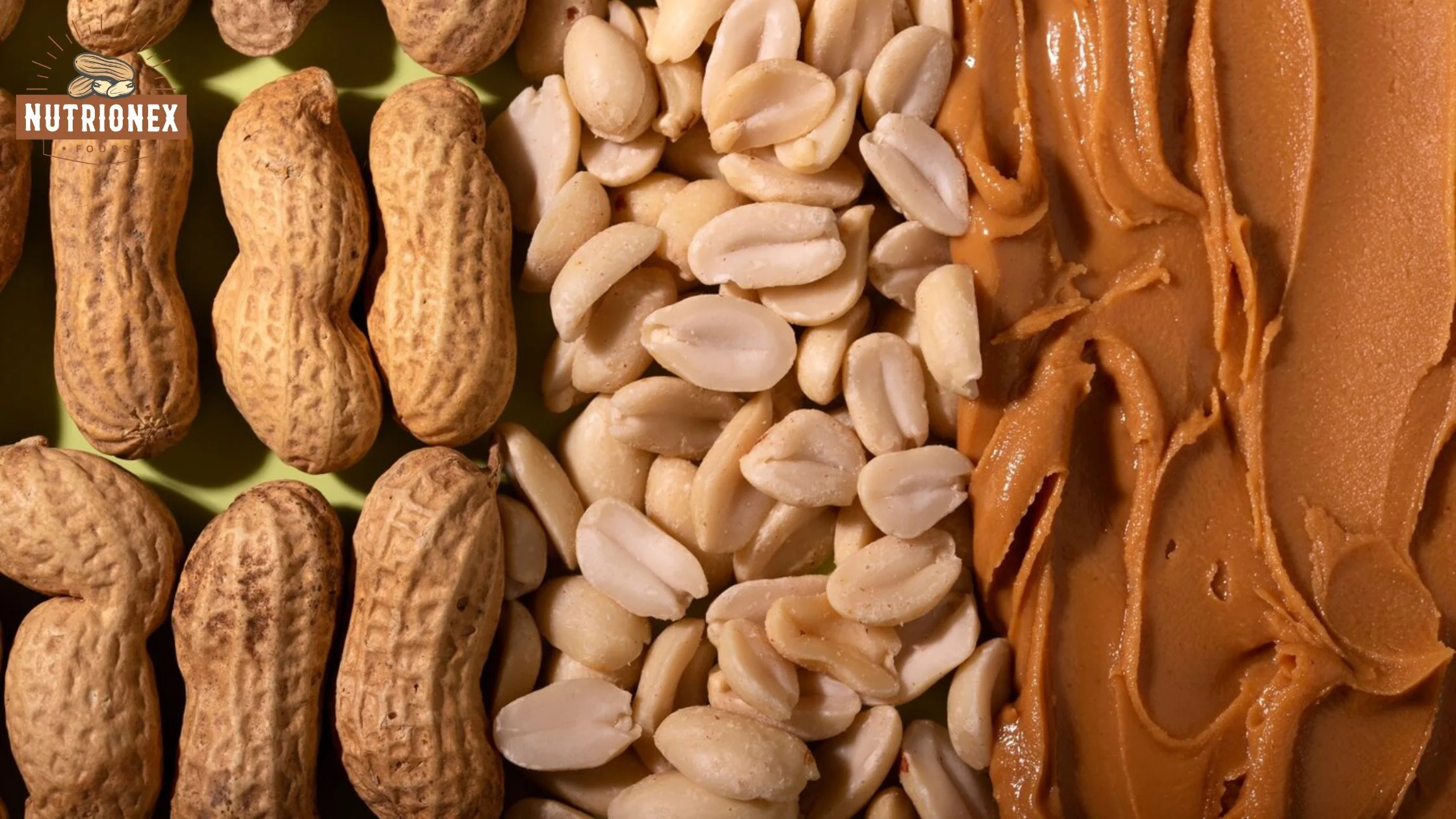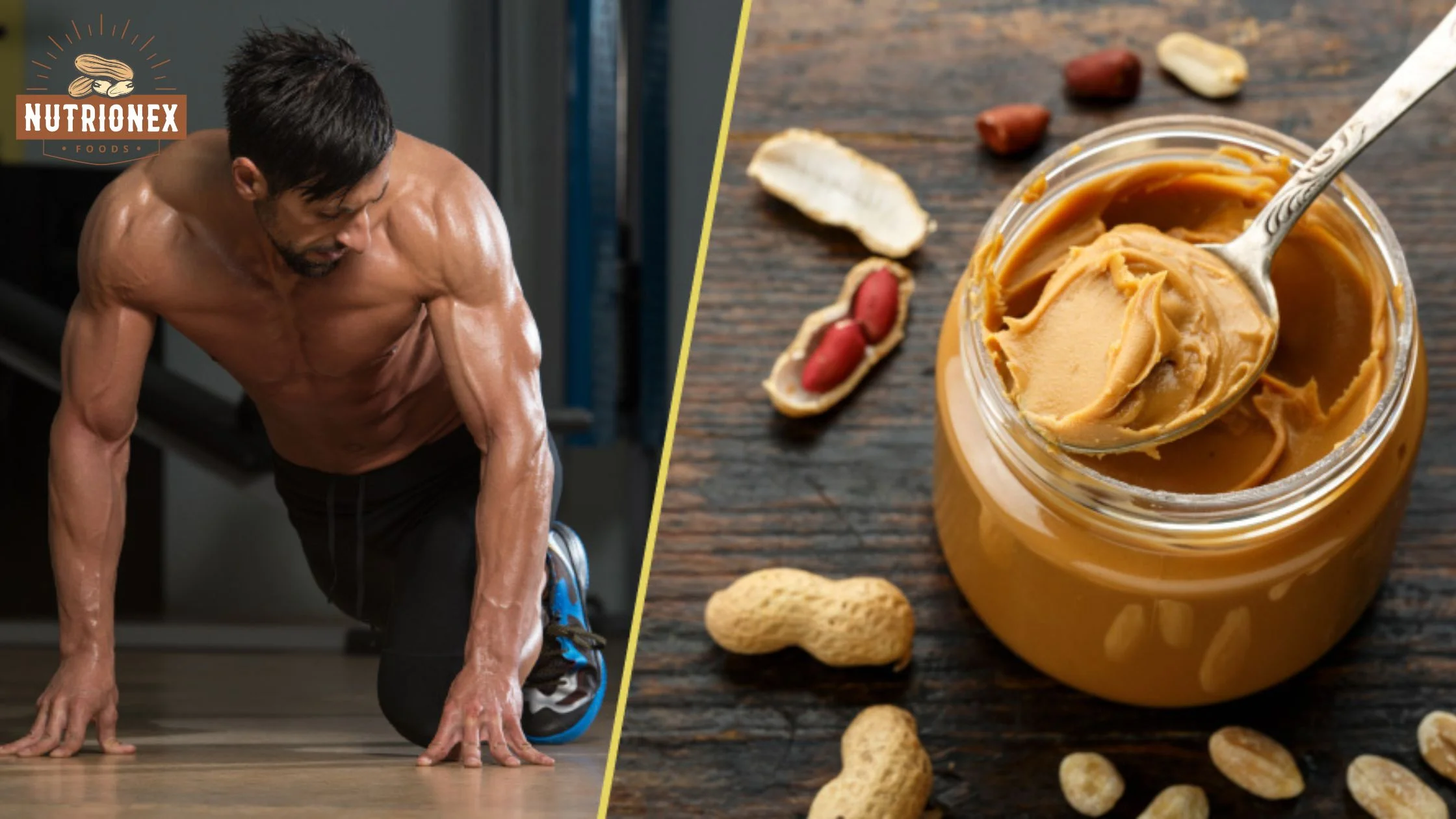
Which Is Healthier: Peanut Butter Or Nutella?
You wake up, stumble to the kitchen, and go straight for the bread. Your next decision is the most important one of the day: peanut butter or Nutella? Both spreadable nutty treats can transform a boring slice of bread into something delicious. But when it comes to your health, one of these options is better for you. If you're trying to make the healthier choice, keep reading to find out if peanut butter or Nutella is the winner.
We'll compare the nutritional profiles of both spreads and help you determine which one deserves a permanent spot in your pantry. You may be surprised to find out that your favorite nutty spread is not as healthy as you think!
Nutritional Profile: How Peanut Butter and Nutella Compare
Peanut butter and Nutella are popular spreads, but in terms of nutrition, peanut butter has the edge. Made from ground peanuts, peanut butter is high in protein and healthy fats, while Nutella is more like chocolate frosting, full of sugar and fat but with little nutrition.

Protein
Peanut butter contains 8 grams of protein per 2 tablespoon serving, a good amount for its size. Nutella has only about 2 grams of protein in the same serving. For a quick protein boost, peanut butter on whole grain toast can’t be beat.
Healthy Fats
The fats in peanut butter are mostly unsaturated fats, the kind that are good for your heart. Nutella’s fats, on the other hand, are mostly saturated fats from palm oil and cocoa butter. While saturated fat in moderation is fine, Nutella is high in it.
Fiber
Peanut butter contains 2 grams of fiber per serving, good for digestion and keeping you full. Nutella has almost no fiber.
Sugar
Here’s where Nutella really packs in the calories. It contains a whopping 21 grams of sugar in just two tablespoons, compared to 3 grams in the same amount of peanut butter. That’s a lot of empty calories with no nutrition.
While Nutella can absolutely be part of a balanced diet, peanut butter is nutritionally superior. As with many foods, moderation is key. Choosing peanut butter with no added sugar and watching your portion sizes will give you the most nutritional benefit. As an occasional treat, Nutella is fine, but for everyday use, peanut butter is the healthier choice.
Health Benefits of Peanut Butter
Peanut butter is packed with nutrients that offer some serious health perks. Here are a few of the main benefits of adding peanut butter to your diet:
1. Supports Heart Health
2. Promotes Muscle Growth and Repair
3. Aids in Weight Management
4. It provides key vitamins and minerals
5. Stabilizes Blood Sugar Levels
6. It boosts antioxidant intake
#1 Supports Heart Health
The monounsaturated and polyunsaturated fatty acids in peanut butter can help lower bad cholesterol levels and reduce the risk of heart disease.
#2 Promotes Muscle Growth and Repair
With its high protein content, peanut butter is ideal for muscle growth and repair, making it a favorite among athletes and fitness enthusiasts.
#3 Aids in Weight Management
Despite its calorie content, peanut butter can aid in weight management. The protein and fiber help you feel full longer, reducing the likelihood of overeating.
#4 It provides key vitamins and minerals.
Peanut butter is high in niacin, magnesium, vitamin B6, and folate. It also contains potassium, which helps maintain blood pressure. Two tablespoons contain 8% of the daily need for niacin, 12% for vitamin B6, and 10% for folate.
#5 Stabilizes Blood Sugar Levels
Peanut butter contains arginine, an amino acid that may help improve the body's ability to respond to insulin and control blood sugar levels. While more research is needed, eating peanut butter in moderation may help reduce the risk of type 2 diabetes.
#6 It boosts antioxidant intake
Peanut butter contains antioxidants like p-coumaric acid that help neutralize harmful free radicals in the body. Antioxidants are important for health as they help prevent cell damage and provide other benefits.
In moderation, peanut butter can absolutely be part of a balanced diet. Look for natural peanut butter with no added sugar and salts. Spread it on whole grain bread, add it to smoothies, or just enjoy it by the spoonful. Your body and taste buds will thank you!
Is Nutella Healthier Than Peanut Butter? The Verdict
Nutella and peanut butter are both popular spreads, but which one reigns supreme in terms of nutrition? The short answer is that neither is a clear winner. Both have their pros and cons, so the healthiest option for you depends on your priorities and preferences.

Nutrition
Peanut butter has more protein, with 8 grams per 2 tablespoon serving compared to 3.5 grams in Nutella. It also has more fiber, with 2 grams versus 1 gram in Nutella. However, Nutella contains calcium, potassium and iron, while peanut butter has little to none of these minerals. Both are high in calories, fat and sugar. Nutella has slightly more sugar with 21 grams per serving compared to 3 grams in natural peanut butter.
Ingredients
Peanut butter contains just peanuts and salt, so it’s a more natural option. Nutella contains sugar, palm oil, hazelnuts, cocoa, milk powder, whey powder, soy lecithin and vanillin. While Nutella is made from all-natural ingredients according to the company, it does contain more additives and processed oils than basic peanut butter.
Health Effects
Peanut butter may have a slight edge for heart health, as it contains more healthy monounsaturated fats. Some research shows peanuts can help lower heart disease risk. However, Nutella contains hazelnuts, which are also good for your heart in moderation. Both spreads, consumed in moderation, can absolutely have a place in a balanced diet. As with many foods, moderation is key. Two tablespoons of either spread contains around 200 calories, so keep portions controlled.
At the end of the day, the choice between peanut butter and Nutella comes down to your nutritional priorities, preferences and how much you want to indulge your sweet tooth. Both can be part of a healthy diet in moderation, so pick the one you enjoy and spread it on whole wheat bread or fresh fruit for a delicious snack.
Conclusion
While Nutella might win in terms of sweetness and indulgence, peanut butter is the clear winner from a nutritional standpoint. It's not just a healthier choice; it's a versatile food that supports a healthy lifestyle. Whether you're looking to manage your weight, fuel your workouts, or simply enjoy a nutritious snack, peanut butter is an excellent choice. Let's spread the word—and the peanut butter—on our journey to healthier eating!
FAQ
What is the nutritional difference between peanut butter and Nutella?
Peanut butter is high in protein and healthy fats, offering a good source of vitamins E, B3, and B6, and minerals such as magnesium, potassium, and zinc. Nutella, on the other hand, is rich in sugar and saturated fat, with lower protein content and few essential nutrients.
Is Nutella considered a healthy breakfast option?
Due to its high sugar and fat content, Nutella is not considered the healthiest breakfast option. It can be enjoyed occasionally in small amounts, but it's better to opt for foods with higher nutritional value for everyday breakfast.
Can peanut butter be a part of a weight loss diet?
Yes, peanut butter can be part of a weight loss diet when consumed in moderation. Its high protein and fiber content can help you feel full longer, aiding in weight management. However, it's calorie-dense, so portion control is key.
Which is better for a vegan diet, peanut butter or Nutella?
Peanut butter is generally a better option for vegans, as it's purely plant-based, especially if you choose a brand without added animal products. Nutella contains skim milk powder, making it unsuitable for a strict vegan diet.
Can consuming peanut butter or Nutella affect cholesterol levels?
Peanut butter, particularly the unsaturated fat in it, can have a positive effect on cholesterol levels by lowering LDL (bad) cholesterol and raising HDL (good) cholesterol. Nutella's high saturated fat content can negatively impact cholesterol levels if consumed in high amounts.

